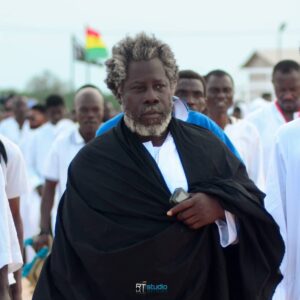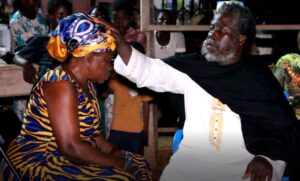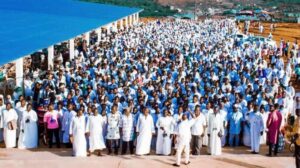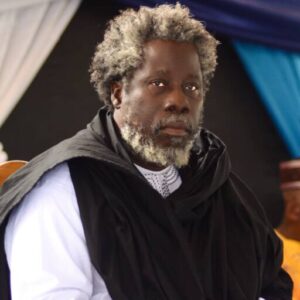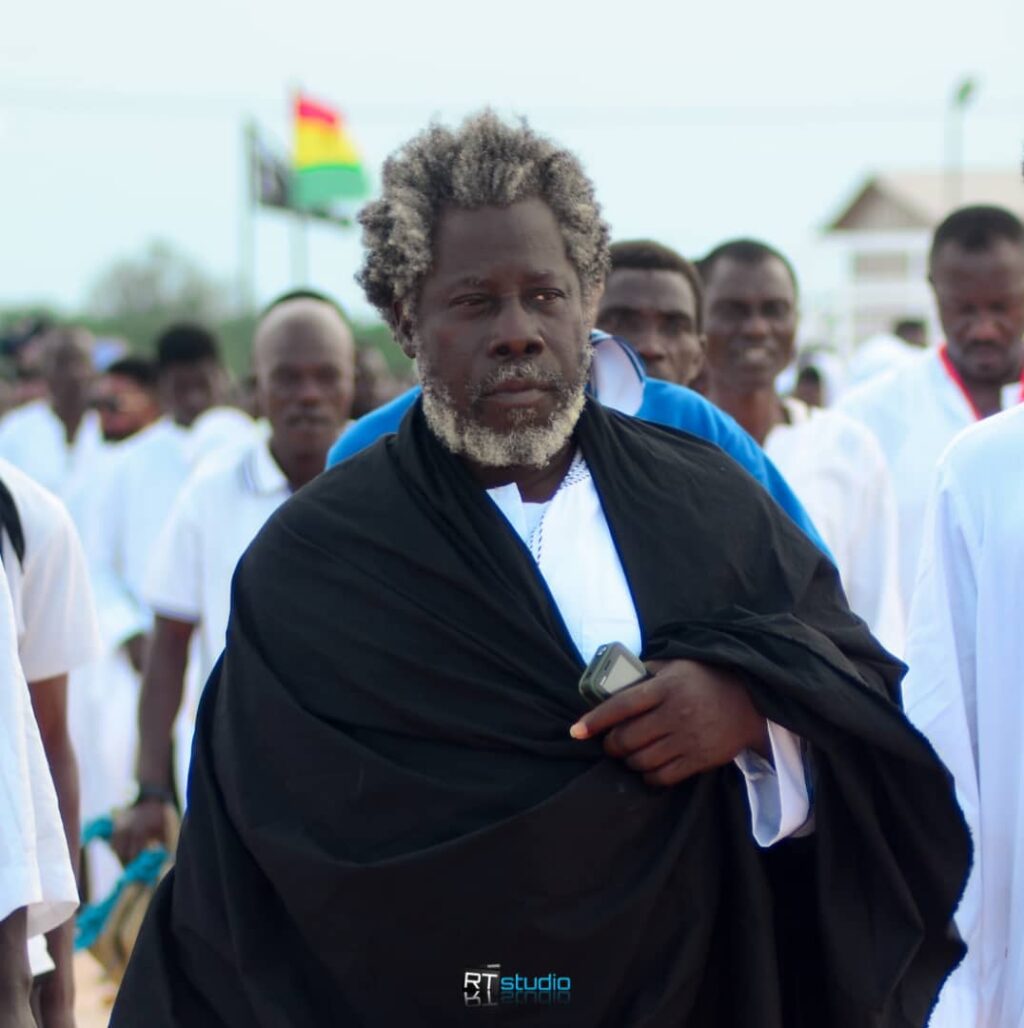
Why Muslims Don’t Sing in Worship
Teachings of Ɔkrɔnkrɔnyi Nyame Somafo Yawoh
Written by Mensah Adinkrah, Ph.D.
Introduction
The text explores the spiritual teachings of Ɔkrɔnkrɔnyi Nyame Somafo Yawoh, the founder of Asomdwee Ntonton Som, regarding the origins of singing in worship. It delves into the creation narrative of the Most High God RABBI, the roles of spiritual entities such as Elijahs, Ɛtumfo, Ɛsunsum, and Abɔfo, and how they influenced the development of different religions. According to these teachings, Moses, originating from the Ɛtumfo, introduced singing as part of worship in Judaism, while Prophet Mohammed (Peace Be Unto Him), from the Abɔfo, did not include singing in Islamic worship due to its absence in angelic practices.
Asomdwee Ntonton Som: The Third Religion of the Most High God
Asomdwee Ntonton Som, meaning “Peace and Exaltation Religion,” is the Third Religion of the Most High God whose True name is RABBI. The religion was founded by Ɔkrɔnkrɔnyi Nyame Somafo Yawoh, who serves as its Spiritual Leader. Ɔkrɔnkrɔnyi Nyame Somafo Yawoh is a Level 7 Elijah, a figure prophesied to come to earth during the End of Days. This prophecy is referenced in the Bible, specifically in Malachi 4:5-6:
“5 Behold, I will send you Elijah the prophet before the coming of the great and dreadful day of the Lord: 6 And he shall turn the heart of the fathers to the children, and the heart of the children to their fathers, lest I come and smite the earth with a curse.”
The Divine Mission of Ɔkrɔnkrɔnyi Nyame Somafo Yawoh
The Elijah prophesied to come in the “End of Days” is revealed by Ɔkrɔnkrɔnyi Nyame Somafo Yawoh to refer to a period 6,000 years after the Flood of Noah. According to the Jewish calendar, this corresponds to approximately the years 2009 to 2010. The 2006 solar eclipse in Ghana symbolically marked the beginning of Ɔkrɔnkrɔnyi Nyame Somafo Yawoh’s divine mission. In 2009, RABBI appeared to him with a command to unite Christians and Muslims in Ghana under a new form of worship called Asomdwee Ntonton Som. This worship focuses on calling upon the name of God, as emphasized in scripture: Jeremiah 33:3: states: ‘Call to me and I will answer you and tell you great and unsearchable things you do not know.’ Zephaniah 3:9: says: ‘For then I will restore to the peoples a pure language, that they all may call on the name of the LORD, to serve Him with one accord.’ Asomdwee Ntonton Som seeks to promote unity and harmony through this singular act of worship.
The Role of Singing in Asomdwee Ntonton Som Worship
Singing plays a central role in the worship of Asomdwee Ntonton Som. However, Ɔkrɔnkrɔnyi Nyame Somafo Yawoh acknowledges that Muslims who join the faith often feel uneasy with this practice, as singing is not traditionally part of Islamic worship. On December 28, 2024, Ɔkrɔnkrɔnyi Nyame Somafo Yawoh revealed a profound mystery about the origins of singing in worship.
According to Him, in the beginning, RABBI existed alone. He then commanded nine Mighty spirits to emerge from within Himself, naming them Elijah (Eli = Fire; Jah = Holy Spirit). Thirty-seven trillion years after their emergence, RABBI began creation. He first created the Ɛtumfo (super-powerful spiritual entities), then the Ɛsunsum (secondary powerful spiritual entities), and finally the Abɔfo (Angels).
According to Ɔkrɔnkrɔnyi Nyame Somafo Yawoh, in RABBI’s Kingdom, both the Elijahs and the Ɛtumfo sing to exalt Him, while the Angels do not. Ɔkrɔnkrɔnyi Nyame Somafo Yawoh explains that RABBI’s messengers are chosen from these spiritual entities and sent to earth to fulfill divine missions:
- From the Ɛtumfo, RABBI sent Moses, who established Judaism. Moses introduced singing as part of worship for the Israelites.
- From the Abɔfo, RABBI sent Prophet Mohammed (Peace Be Upon Him). Since singing is not part of the Angels’ worship, it was not included in the Islamic faith.
This distinction underscores the diverse spiritual foundations of worship practices across Islam, Judaism and Asomdwee Ntonton Som.
Conclusion
In conclusion, the teachings of Ɔkrɔnkrɔnyi Nyame Somafo Yawoh provide a profound spiritual framework for understanding the role of singing in worship across different religions. By tracing the origins of singing to the Ɛtumfo and its exclusion among the Abɔfo, these teachings explain why singing is integral to some faiths like Judaism and Christianity but absent in Islam. This distinction underscores the diverse ways in which spiritual practices have evolved, each rooted in unique divine purposes. Asomdwee Ntonton Som seeks to unite these traditions, embracing singing as a universal expression of exaltation to the Most High God RABBI.

